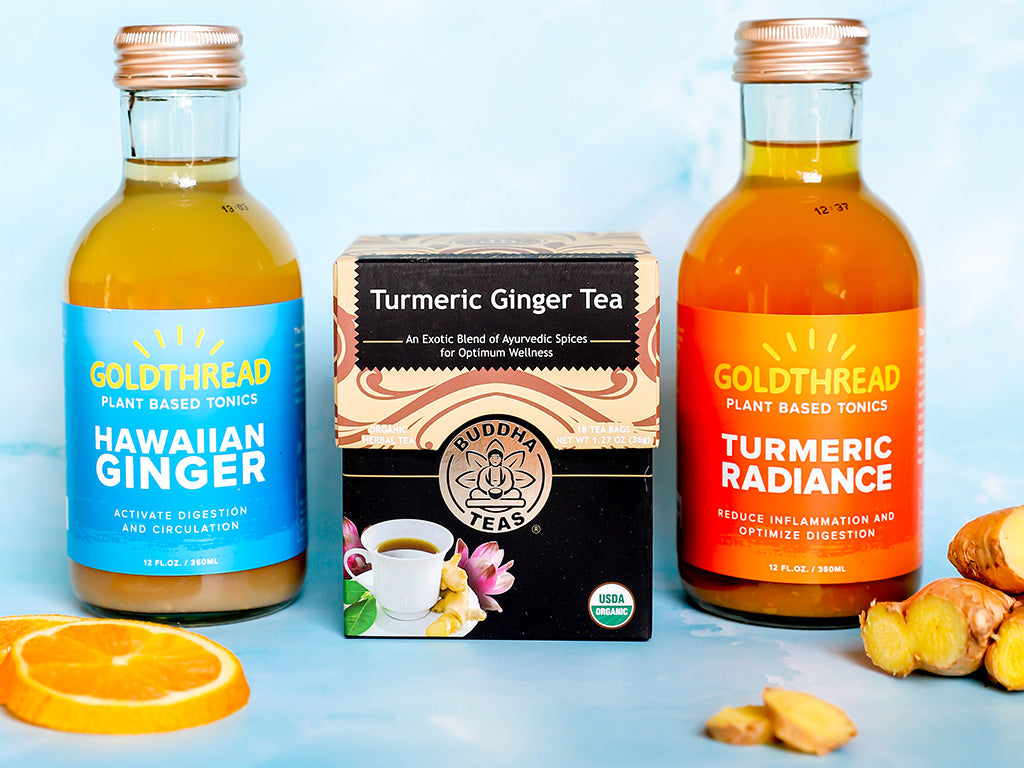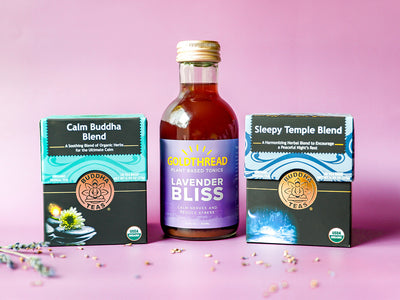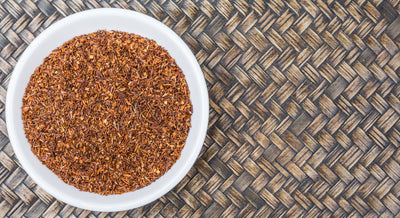Ginger and Turmeric are a staple in any medicinal plant collection. These culinary spices do a lot more than just add depth of flavor to dishes. Used by Ayurvedic medicine practitioners for centuries, turmeric and ginger have a broad range of benefits from improving digestive function to boosting immunity and enhancing circulation among many others. Read on for more about these antioxidant powerhouses and some of our favorite ways to incorporate them into your diet and lifestyle.
Antioxidant Power
When we think of antioxidant-rich foods, berries and leafy greens may come to mind, but medicinal plants like turmeric and ginger actually have a much higher concentration of antioxidants. Using the ORAC scale, which is the way antioxidant strength is measured, blueberries have a value of 9,621 and Turmeric has a value of 127,068!
Digestive Support
It’s no accident that culinary herbs and spices like ginger and turmeric are frequently consumed during and around meal times. From the turmeric in curry, to the pickled ginger served with sushi, to the ginger-turmeric tea sipped after a meal, these powerful medicinal plants both stimulate metabolism and help neutralize harmful microbes that may ride in with your food. They accomplish this by increasing circulation to the digestive system and stimulating production of the hydrochloric acid and enzymes that break down food, leading to enhanced nutrient absorption and increased energy - while preventing and alleviating excess gas and bloating. In addition to speeding up metabolism and empowering more efficient digestion, ginger also has antispasmodic properties, which relax the gut and have a soothing effect on cramping and nausea (this is also why ginger is known as a salve for motion-sickness).
Anti-Inflammatory Benefits
Curcumin, a primary bioactive constituent in turmeric, both gives the root its bright orange color and has powerful anti-inflammatory properties. Curcumin has been shown to increase antioxidant activity at the cellular level, eliminating free radicals and easing inflammation at its source. This makes turmeric an excellent remedy for a range of inflammatory conditions including inflammatory gut conditions, allergies, arthritis, aching muscles from exercise or injury, and skin issues ranging from acne to acute sunburn. Combining turmeric with black pepper can boost absorption rates up to 2,000 percent!
Much like turmeric, there are few conditions that ginger doesn’t benefit. Ginger root has been studied for its unique ability to soothe pain and inflammation by modulating OX-2 (an enzyme responsible for inflammation and pain) inflammatory pathways. The takeaway? Ginger is the one to grab ginger when you want to address chronic inflammation ranging from arthritis to headaches and alleviate pain and soreness.
Immune Support
As a result of their ability to reduce inflammation with their high antioxidant content and improve circulation, ginger and turmeric are both excellent choices to support a strong immune system. Ginger contains anti-microbial compounds that can help eliminate harmful microbes, and curcumin, the component in turmeric that gives it its bright orange color, stimulates the production of immune factors in the body and helps to modulate the immune system. As a preventative measure, regular consumption of turmeric and ginger will keep metabolic processes and cellular functions firing on all cylinders for a body that is able to more effectively filter out pathogens.
Drink More Plants
Ginger and Turmeric are both excellent choices to sip before or after a meal, and a great combo to consume in tandem. Drink your plants by enjoying Buddha Teas Turmeric Ginger Tea (delicious hot or or iced) or a bottle of Goldthread Tonics Turmeric Radiance or Hawaiian Ginger Tonic. You could make also make your own Turmeric Ginger Shots or craft a Golden Milk Latte by mixing equal parts turmeric and ginger powder with a dash of cinnamon, vanilla, black pepper, and natural sweetener in hot water and combining with frothed coconut milk.
For a savory option, be generous with your use of fresh and dried ginger and turmeric in curries, soups, marinades, stir frys, and kitchari. To make things even easier, curry spice blends containing both ginger and turmeric are readily available in most grocery stores.
You can also find capsule and tablet formations of both turmeric and ginger to take before or after meals or anytime you have an upset stomach or are experiencing the negative effects of inflammation.
However you choose to enjoy these incredible plants, do it often, as the benefits will accumulate over time.


